Table of Contents
What is Complex Numbers?
The numbers of the form a + ib are called complex numbers where a, b are real numbers. Complex numbers are generally denoted by z. Thus complex number is z = a + ib.
A complex number z = a + ib consist of two parts-
- Real part denoted by Re (z).
- Imaginary part denoted by Im (z).
Thus z = a + ib then Re (z) = a and Im (z) = b.
Purely Real Complex Number- A complex number is said to be purely real if its imaginary part is zero i.e. z is purely real if and only if the imaginary part of z = 0.
Purely Imaginary Complex Number- A complex number is said to be purely imaginary if its real part is zero i.e. z is purely imaginary if and only if the real part of z = 0.
Equality of Complex Numbers- Two complex numbers z1 = a + ib and z2 = c + id are said to be equal if an only if a = c and b = d i.e. Re (z1) = Re (z2) and Im (z1) = Im (z2).
Operations on Complex Numbers:
(1) Addition of Complex Number- If z1 = a + ib and z2 = c + id with the two complex number, then their addition is denoted by z1 + z2 and is given as-
| z1 + z2 = (a + c) + i(b + d) ⇒ z1 + z2 = [Re (z1) + Re (z2)] + i[Im (z1) + Im (z2)] |
Properties of Addition of Complex Number:
- Commutative Property- If z1 and z2 be the two complex numbers then z1 + z2 = z2 + z1.
- Associative Property- If z1, z2, z3 be the three complex numbers then (z1 + z2) + z3 = z1 + (z2 + z3).
- Additive Identity-If z be any complex number then z + 0 = z = 0 + z, then O is called the additive identity and O = 0 + i0.
- Additive Inverse- If z1 and z2 be any two complex numbers such that z1 + z2 = 0 = z2 + z1 then z2 is the additive inverse of z1 and in general z2 = -z1.
(2) Subtraction of Complex Number- If z1 = a + ib and z2 = c + id be two complex numbers, then the subtraction of z2 from z1 is-
| z1 – z2 = z1 + (-z2) = (a + ib) + (-c – id) = (a – c) + i(b – d) |
(3) Multiplication of Complex Number- If z1 = a + ib and z2 = c + id be the two complex numbers then their multiplication is denoted by z1.z2 and is given as-
| z1 . z2 = (a + ib) (c + id) ⇒ z1 . z2 = ac + i(ad + bc) – bd ⇒ z1 . z2 = (ac – bd) + i(ad + bc) ⇒ z1 . z2 = [Re (z1) . Re (z2) – Im (z1) . Im (z2)] + i[Re (z1) . Im (z2) + Im (z1) . Re (z2)] |
Properties of Multiplication of Complex Number:
- Commutative Property- If z1 and z2 be two complex numbers then z1 . z2 = z2 . z1.
- Associative Property- If z1, z2, z3 be three complex numbers then (z1 . z2) . z3 = z1 (z2 . z3).
- Multiplicative Identity- If z be any complex number such that z . 1 = z = 1 . z then ‘1’ is called the Multiplicative Identity.
- Multiplicative Inverse- If z be any complex number such that z . z1 = 1 = z1 . z then z1 is called the multiplicative inverse of z. In general z = 1/z.
| Example- Find the Multiplicative Inverse of a + ib. Solution: Let z = a + ib then multiplicative inverse of z is 1/(a + ib) ⇒ z = 1/(a + ib) x (a – ib)/(a – ib) ⇒ z = (a – ib)/[a2 – (ib)2] ⇒ z = (a – ib)/(a2 + b2) ⇒ z = z̄/| z |2 |
(4) Division of Complex Number- If z1 = a + ib and z2 = c + id are two complex numbers, then the division of z1 by z2 is defined as-
| z1/z2 = (a + ib)/(c + id) ⇒ z1/z2 = (a + ib).(c – id)/(c + id).(c – id) ⇒ z1/z2 = [(ac + bd) + i(bc – ad)]/(c2 + d2) ⇒ z1/z2 = (ac + bd)/(c2 + d2) + i (bc – ad)/(c2 + d2) |
Conjugate of a Complex Number:
If z be any complex number such that z = a + ib then its conjugate is denoted by z̄ and is given as z̄ = a – ib.
Properties of Conjugate of a Complex Number:
If z, z1, z2 be any complex number then-

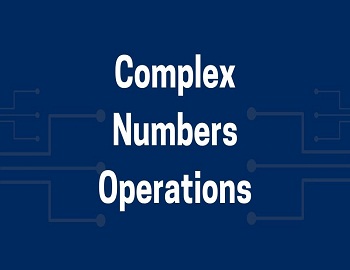




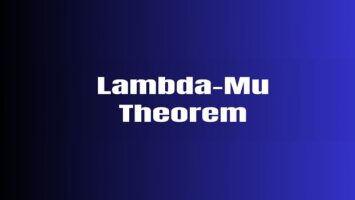
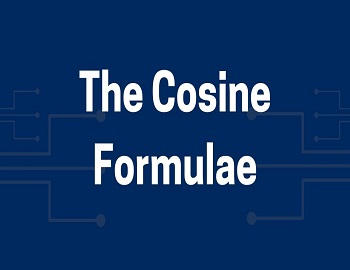
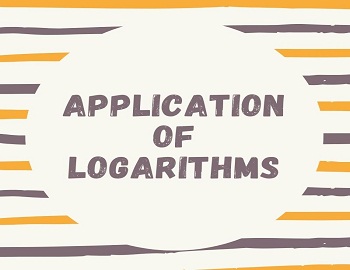
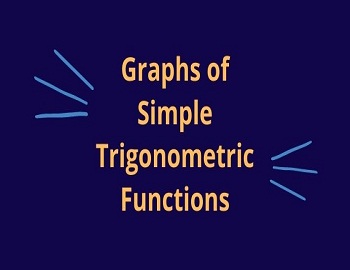
Comments (No)